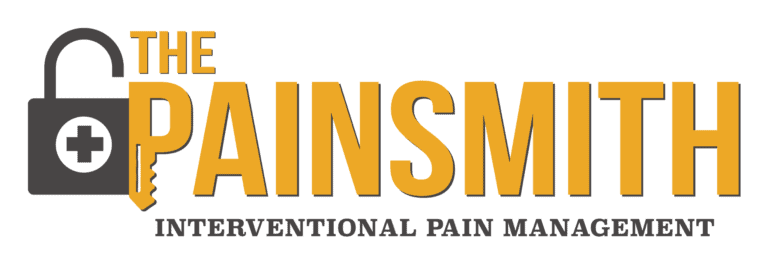Aging is an inevitable part of life and with it comes some amount of physical and mental decline. As you journey through the years, finding ways to maintain your quality of life is paramount. However, aging does not have to be synonymous with pain. While some degree of physical decline may be inevitable, there are numerous proactive measures we can take to ensure healthy aging without the burden of chronic pain. In this post, Dr. Smith explores various strategies for preventing and managing chronic pain as you age.
Chronic pain, defined as persistent pain lasting for more than three months, can significantly impact one’s physical and emotional well-being. It has various potential causes, including injury, medical conditions, or the natural aging process itself. As you age, bone and joint degeneration can lead to several types of chronic pain including arthritis, neuropathy, back pain, and joint pain. Additionally, pain caused by other medical conditions such as cancer or diabetes becomes more likely. Regardless of its origin, chronic pain can limit mobility, disrupt your sleep, impact your mental health and reduce your overall quality of life.
So how do you ensure the best possible outcomes for aging without chronic pain?

Here are some healthy aging strategies to consider:
Stay Active:
Maintaining a regular physical activity is crucial for continued mobility, flexibility, and muscle strength as you age. A combination of aerobic exercises, such as walking, swimming, or cycling, and strength training to support joint health and bone density provides cardiovascular and skeletal benefits. Low-impact activities like yoga and tai chi can improve balance and flexibility without straining your joints or muscles.
Read More > Low-Impact Exercises to Help Relieve Pain
Enjoy a Balanced Diet:
Nutrition plays a pivotal role in healthy aging. Enjoying a diet rich in fruits, vegetables, whole grains, and lean proteins can provide essential nutrients and antioxidants and help maintain a healthy weight. Limiting processed foods, sugar, and saturated fats can help manage inflammation, a common contributor to chronic pain conditions.
Read More > Best (and Worst) Foods for Nerve Pain
Prioritize Sleep:
Quality sleep is essential for overall health and pain management. Establish a consistent sleep schedule, create a relaxing bedtime routine, and optimize your sleep environment for comfort. Addressing sleep disorders, such as sleep apnea or insomnia, can alleviate chronic pain symptoms and improve overall well-being.
Read More > The Important Relationship Between Sleep & Chronic Pain
Manage Stress:
Chronic stress can exacerbate pain symptoms and contribute to inflammation in the body. Incorporate stress-reduction techniques into your daily routine, such as mindfulness meditation, deep breathing exercises, or engaging in hobbies and activities that bring joy and relaxation.
Read More > Can Meditation Help Me Deal With Chronic Pain?
Maintain a Healthy Weight:
Excess weight puts added strain on joints and can worsen chronic pain conditions such as arthritis and back pain. Strive to achieve and maintain a healthy weight through a combination of balanced nutrition and regular exercise.
Read More > Can weight loss help with pain management?
If you do begin to struggle with chronic pain, there are many treatments available to help manage it, including:
Consult with Healthcare Professionals:
If you’re experiencing chronic pain, seek guidance from healthcare professionals who specialize in pain management. This may include primary care physicians, pain specialists, and physical therapists. A comprehensive evaluation can help identify the underlying cause of your pain and determine the most effective treatment approach. The most important thing is to take your pain seriously and seek treatment before your condition worsens.
Explore Non-pharmacological Therapies:
Many non-pharmacological therapies can effectively manage chronic pain with minimal risk of side effects. These may include physical therapy, acupuncture, massage therapy, and cognitive-behavioral therapy (CBT). These modalities can help reduce pain intensity, improve function, and enhance overall well-being.
Utilize Medications Wisely:
In some cases, medications may be necessary to manage chronic pain. However, it’s essential to use them judiciously under the guidance of a healthcare provider to minimize the risk of dependence and adverse effects. Nonsteroidal anti-inflammatory drugs (NSAIDs), acetaminophen, and certain antidepressants or anticonvulsants may be prescribed to alleviate pain and improve function.
Incorporate Alternative Therapies:
Complementary and alternative therapies can complement conventional treatments for chronic pain. These may include herbal supplements, topical analgesics, heat or cold therapy, transcutaneous electrical nerve stimulation (TENS), or biofeedback. Experiment with different modalities to find what works best for you.
Practice Self-care:
Self-care practices are essential for managing chronic pain and promoting overall well-being. Prioritize activities that promote relaxation, such as gentle stretching, hot baths, or listening to soothing music. Establish healthy boundaries, practice assertive communication, and seek support from friends, family, or support groups.
Healthy aging is within reach for those who are committed to proactively managing their lifestyle. By maintaining healthy levels of physical activity, nutrition, stress management, and appropriate medical interventions, you can maintain vitality and well-being throughout the aging process. Remember, it’s never too late to prioritize your health and embrace a life with less chronic pain. With dedication and perseverance, you can age gracefully and enjoy a fulfilling and healthy life for years to come.
If you have back pain, joint pain, neck pain, or any other type of pain, give us a call or you can request a consultation and we’ll discuss your options.

